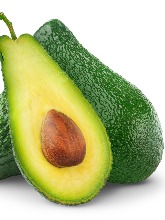Universitair hoofddocent Sanderine Nonhebel was in het landelijke nieuws; over de hoeveelheid water dat nodig is om advocado's te kunnen kweken

Telers hebben tot 2.000 liter water nodig om een kilo avocado's te produceren. Nu het een tijdje erg droog is geweest en we spaarzaam met water moeten omgaan, is het misschien niet het beste fruit om te eten. Waarom heeft de avocado zoveel water nodig? En wat zijn de alternatieven?
De avocado is met zijn hoge waterverbruik dus niet per se een uitzondering, zegt ook Sanderine Nonhebel. Zij is universitair hoofddocent aan de Rijksuniversiteit Groningen, gespecialiseerd in voedselvoorziening en milieu. "Een boom heeft nou eenmaal water nodig om te groeien. Als je uitrekent hoeveel water op een hectare valt, hoeveel bomen er groeien en hoeveel avocado's eruit komen, dan krijg je inderdaad dit soort getallen. Bij noten zit je zelfs tegen de 4.000 liter per kilo aan."
"We zijn wereldwijd ons menu aan het verschuiven van simpele aardappelen en pasta naar fancy producten als avocado", ziet de hoofddocent. "Dan zie je dus dat de hoeveelheid water die iedereen in zijn menu heeft gewoon fiks omhooggaat. Die verandering van consumptiepatronen betekent dus dat we wereldwijd veel meer water nodig hebben voor onze voedselvoorziening."
Lees het artikel
